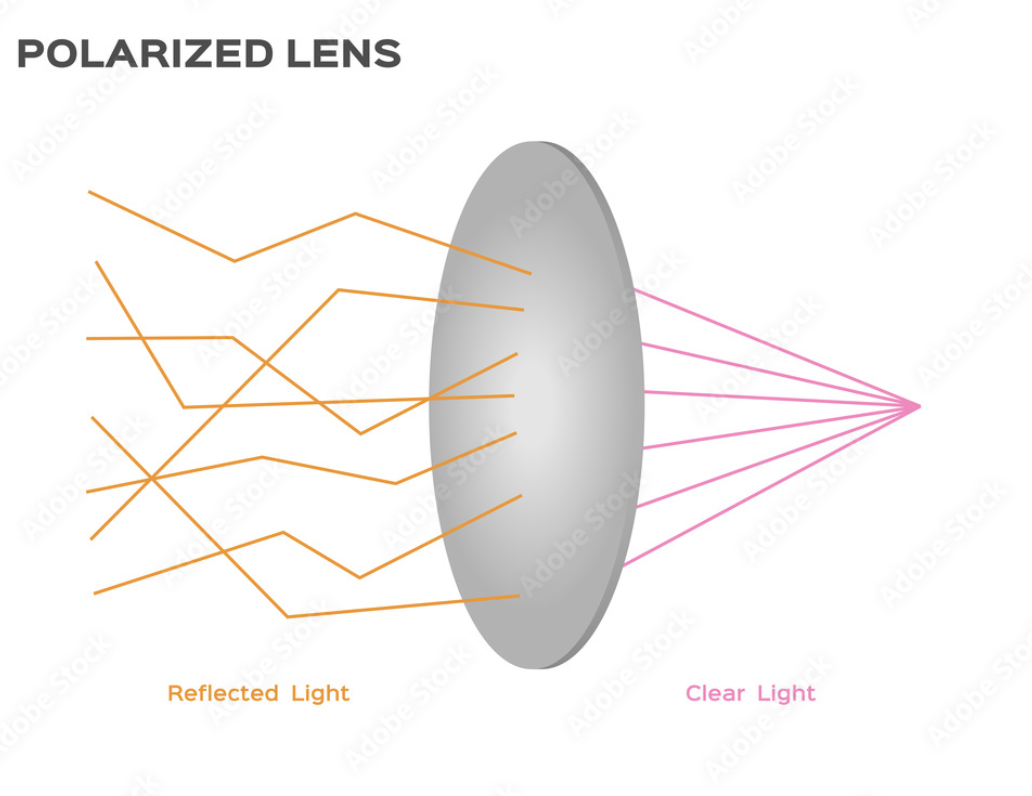Updated on January 20, 2025
When to Wear Polarized vs. Non-Polarized Sunglasses


Vision Center is funded by our readers. We may earn commissions if you purchase something via one of our links.
If you’re shopping for a new pair of sunglasses, you may wonder whether to pick polarized or non-polarized lenses. Both can be good options for blocking harmful UV rays, but there are a few key differences. Let’s discuss this more in-depth.

Polarized vs. Non-Polarized Sunglasses
The main difference between polarized and non-polarized lenses is that polarized ones reduce glare from bright sunlight and reflective surfaces. They also counteract bright surface glare.
Polarized lenses contain a special chemical that blocks out bright light that reflects off smooth surfaces. Like non-polarized lenses, they also reduce ambient light.

Conversely, non-polarized lenses reduce the overall intensity of light by treating all light equally. Sparkles, shimmers, and glare may still bother your eyes in certain conditions, such as snow or water.
Where to Buy Sunglasses
- Biggest Selection: GlassesUSA
- Fastest Delivery: EyeBuyDirect
- Best Independent Retailer: Warby Parker
Where to Buy Glasses + Contacts
Best Overall: Warby Parker
Fastest Delivery: EyeBuyDirect
Also Great: Liingo
Best Place to Buy Contacts: Discount Contacts
When is it Better to Use Polarized Lenses?
If you spend a lot of time on the road or by the water, polarized sunglasses would be better. These will help deflect bright glares from asphalt and calm water.
Polarized lenses can also reduce glare and the amount of light that reaches your eyes. It can reduce eye strain and potentially reduce tiredness.
Finally, these lenses can make images crisper and cleaner. Overall, you should consider getting polarized glasses when you are:
- Driving in daylight
- Biking
- Jogging
- Fishing
- Boating
- Skiing in snowy conditions
When are Non-Polarized Lenses Better?
Polarized lenses can make LCD screens difficult to read. Because of this, pilots are advised to wear non-polarized sunglasses while flying to avoid danger and confusion when using the plane’s control panel.
Non-polarized glasses are also good if you’re reading texts from phones, ATMs, etc. Other situations where you should wear non-polarized sunglasses include:
- Operating heavy machinery
- Driving in at night low-light situations
- Reading
- Using digital screens
Non-polarized lenses are also good for skiing in icy conditions, as polarized sunglasses may make patches of ice less noticeable.
In this article
6 sources cited
Updated on January 20, 2025
Updated on January 20, 2025
About Our Contributors
Lauren, with a bachelor's degree in biopsychology from The College of New Jersey and public health coursework from Princeton University, is an experienced medical writer passionate about eye health. Her writing is characterized by clarity and engagement, aiming to make complex medical topics accessible to all. When not writing, Lauren dedicates her time to running a small farm with her husband and their four dogs.
Dr. Melody Huang is an optometrist and freelance health writer with a passion for educating people about eye health. With her unique blend of clinical expertise and writing skills, Dr. Huang seeks to guide individuals towards healthier and happier lives. Her interests extend to Eastern medicine and integrative healthcare approaches. Outside of work, she enjoys exploring new skincare products, experimenting with food recipes, and spending time with her adopted cats.






